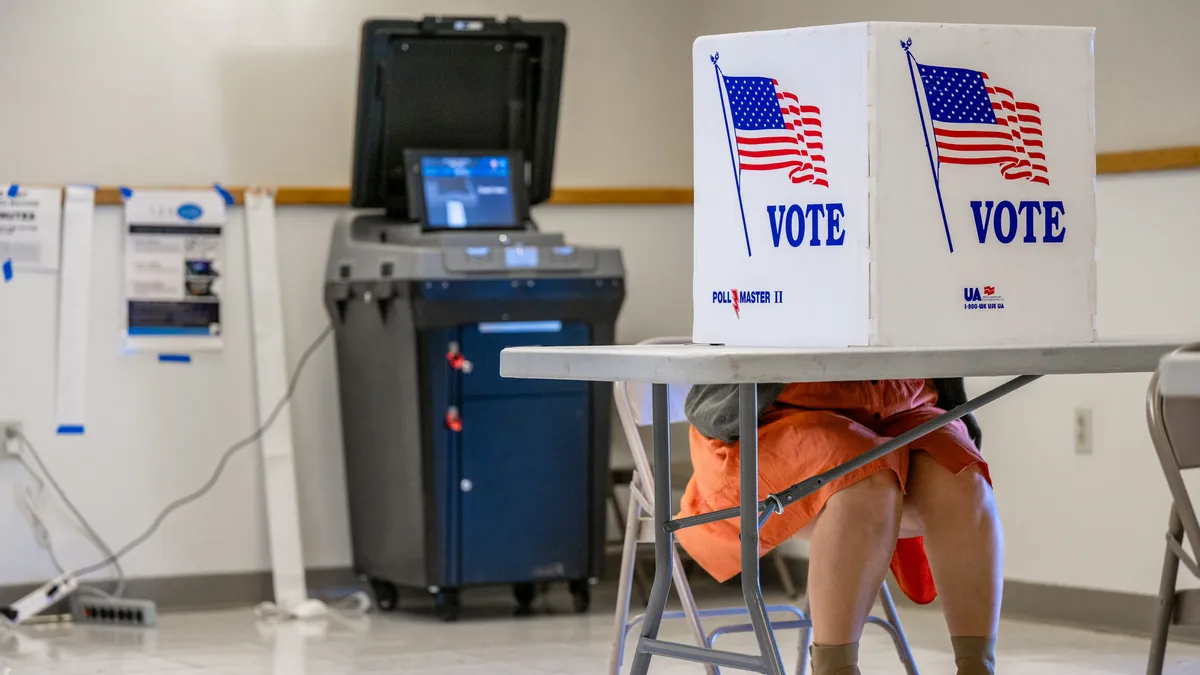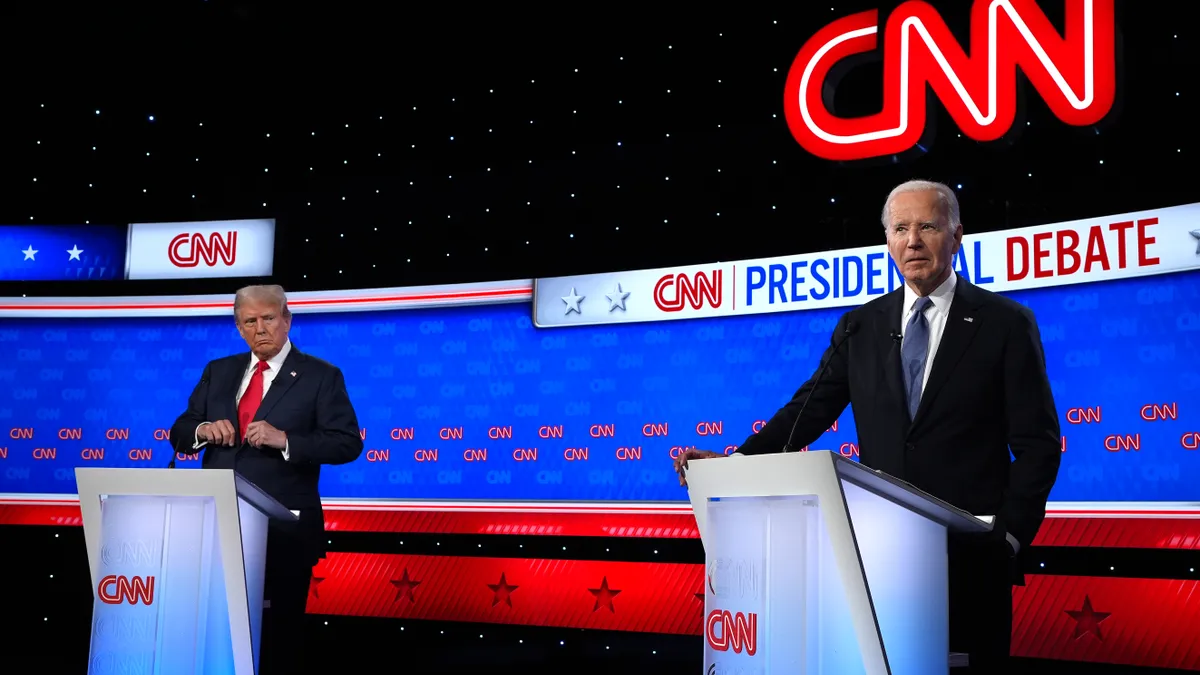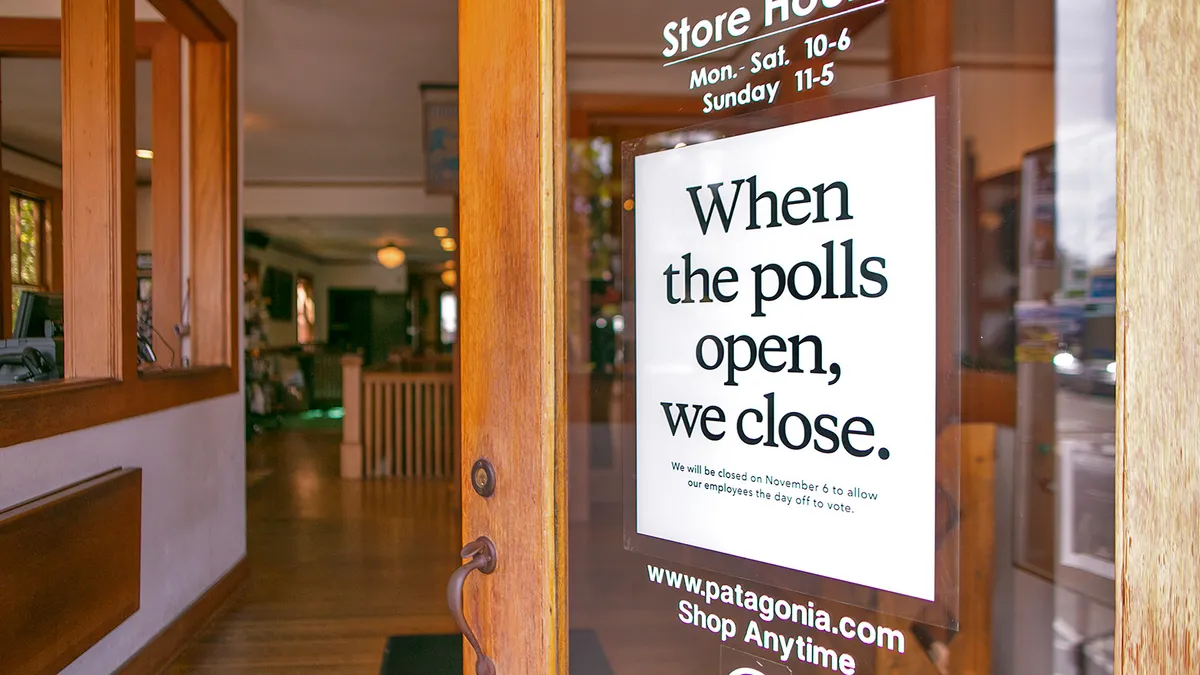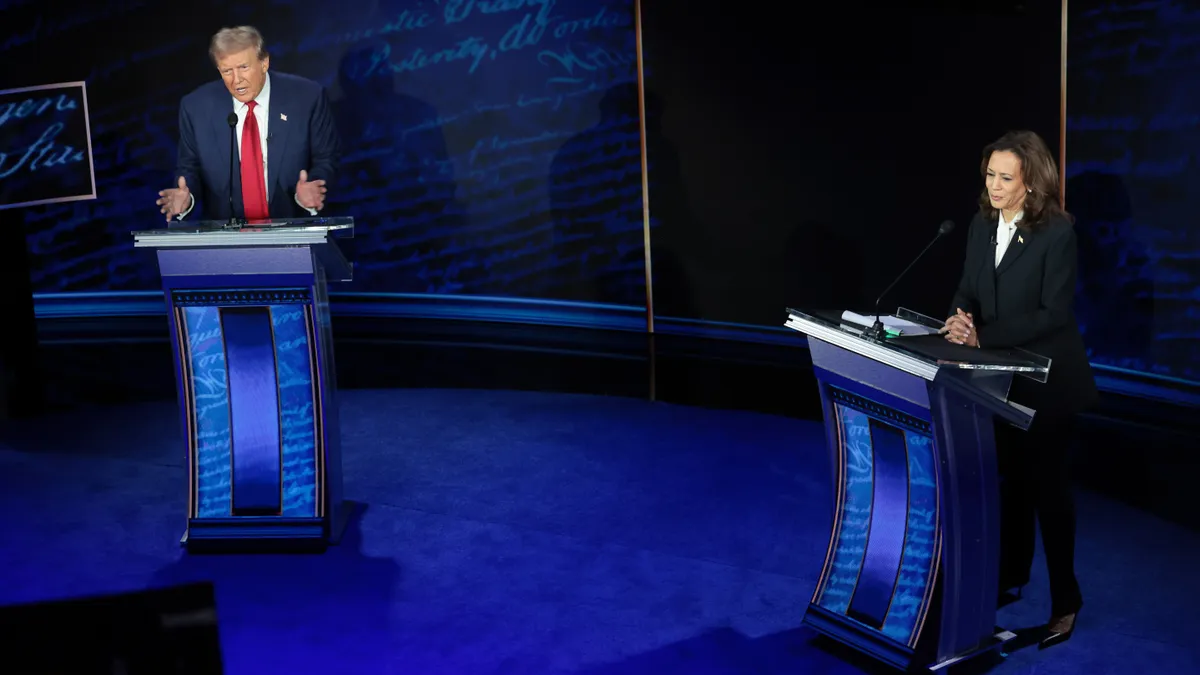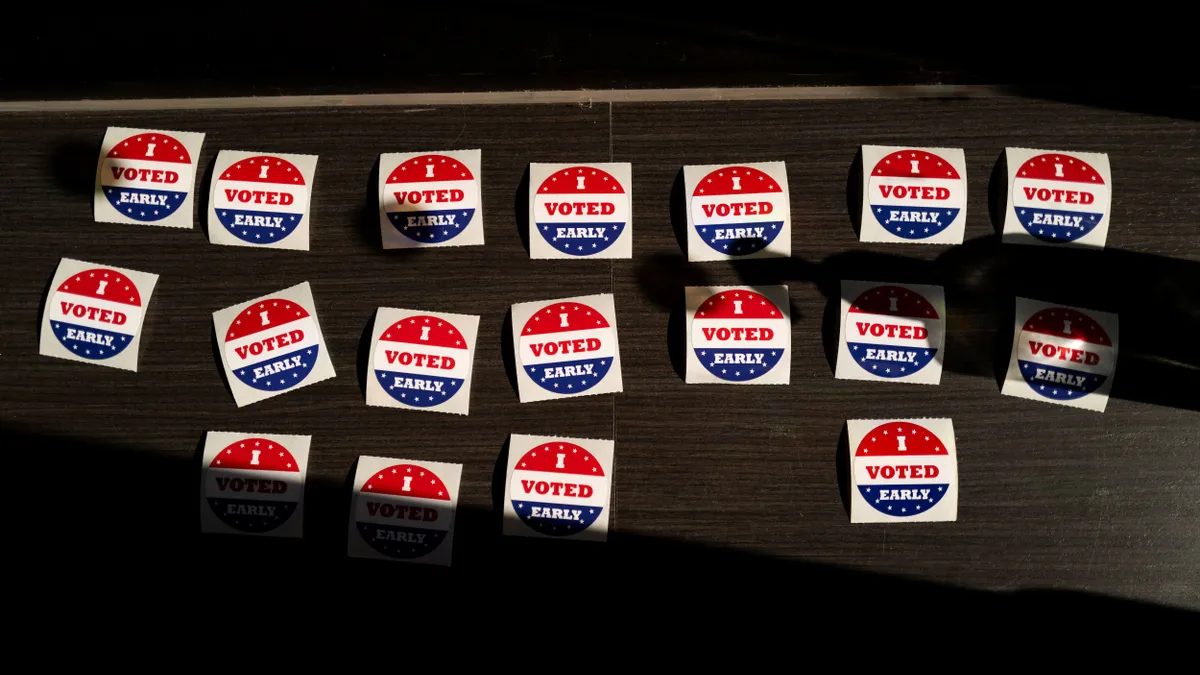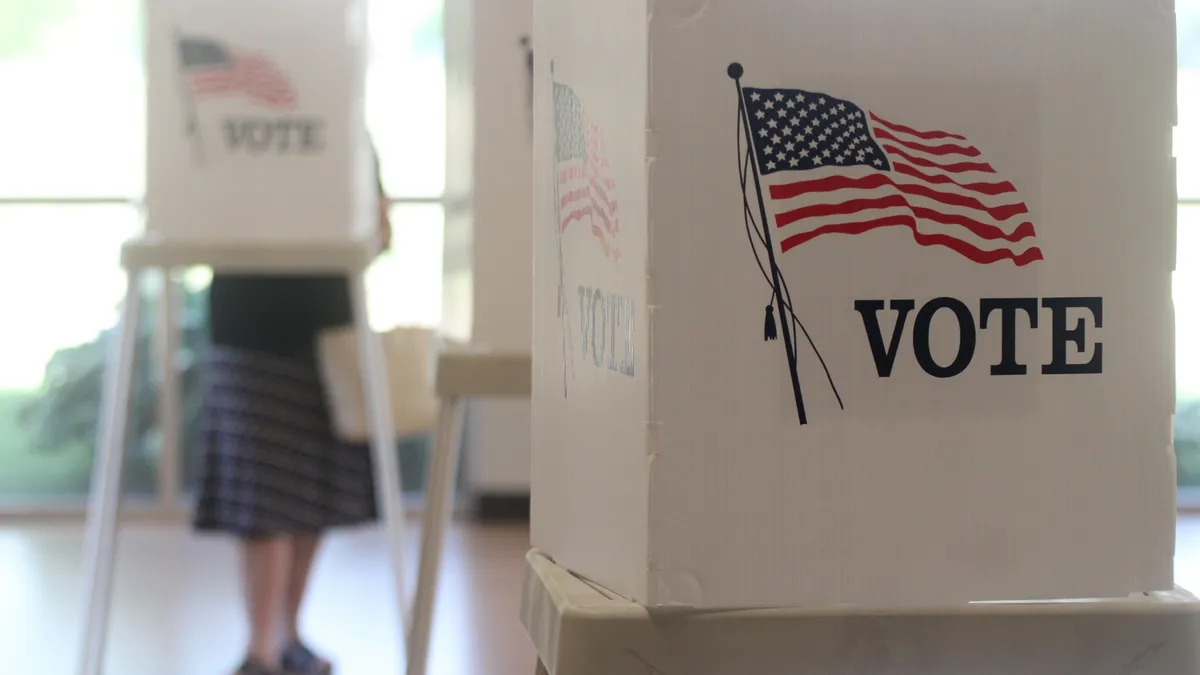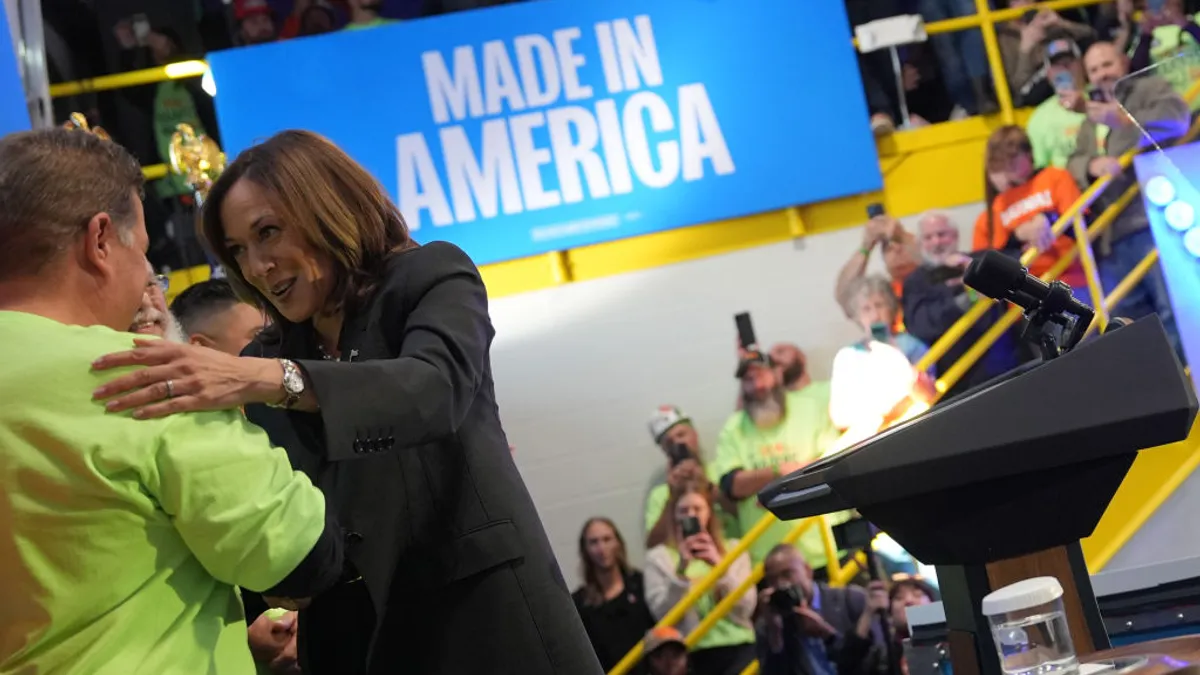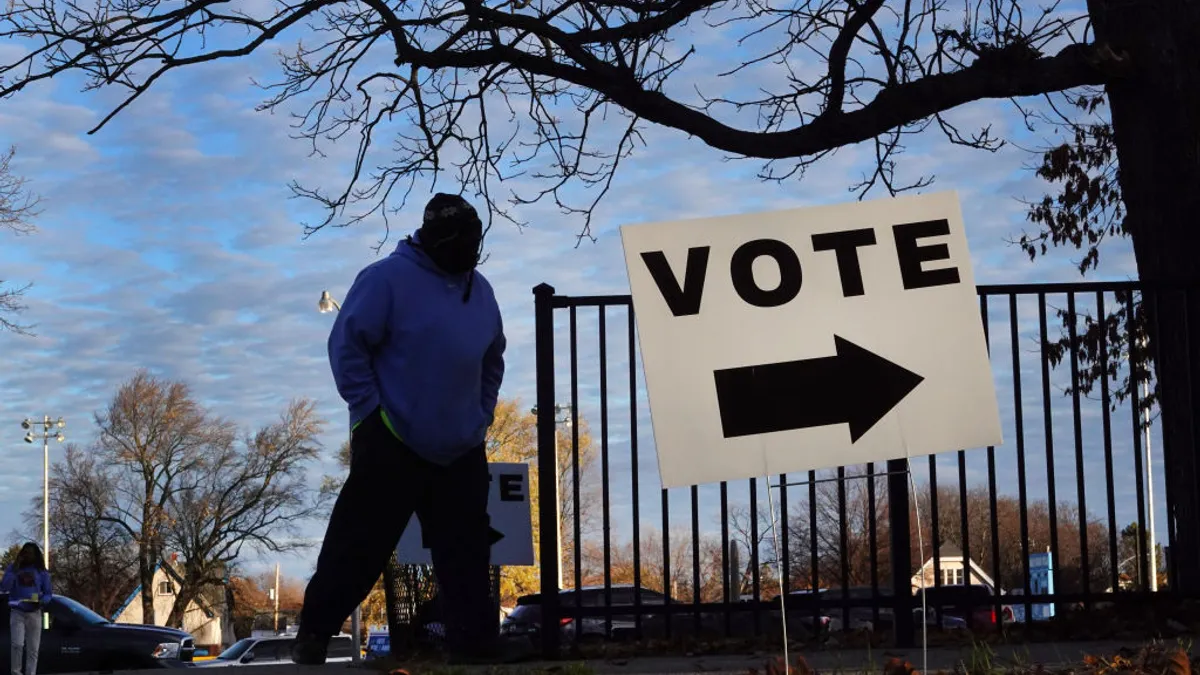Any election opens up the possibility for fraught conversations in the workplace, and a presidential election even more so.
To help employers navigate potential turmoil wrought by political differences, law firm Fisher Phillips developed a guide of frequently asked questions.
“We’re in a really politically charged environment. That’s what makes this so fraught with peril this election cycle,” Rick Grimaldi, a partner at Fisher Phillips and one of the guide’s authors, told HR Dive.
Be mindful of the law
The First Amendment’s free speech guarantee typically doesn’t apply to private employers disciplining employees for taking part in prohibited conduct, the Fisher Phillips team wrote.
However, private sector employees in union and nonunion workplaces can engage in concerted activity, which include discussions about higher wages, changes to work schedules and job security, under the National Labor Relations Act.
“Therefore, certain political discussions impacting terms and conditions of employment would fall under the NLRA’s purview, while political activity that is unrelated to employment concerns would not be protected,” the guide’s authors, two partners and an associate at the firm, wrote.
While federal antidiscrimination laws don’t directly protect political activity or speech, employers need to be careful when workers’ discussions involve race, color, sex, sexual orientation, gender identity, national origin, religion, age or disability, per the guide.
“An employee could claim that [an employer’s] action responding to their political discussion on such subjects is actually a proxy for illegal discrimination,” the authors wrote.
Be consistent
Employers also must be consistent in how they handle political discussions to avoid the appearance of preferential treatment, the authors said. And they need to check state laws to see if taking action against an employee based on political action is permitted.
The same is true of dress code and appearance policies, the authors said.
“If you don’t allow employees to wear ‘MAGA’ hats in support of Trump, you also shouldn’t let them wear hats promoting Biden or any other political candidate. Likewise, you can establish reasonable, consistent limits on posters and other workplace displays, so long as you comply with the NLRA rules,” the authors said.
Promote civility
The best — and safest — thing an employer can do is to repeatedly encourage employees to “act civilly and to act with etiquette” when it comes to political discussions, Grimaldi said.
“While you might not be able to stop the conversations altogether, it’s important to set expectations on professionalism and appropriate workplace interactions,” the authors said.
The guide recommends training managers on how to identify and address heated conversations and designating someone in human resources or on the legal team who managers can call with questions.



